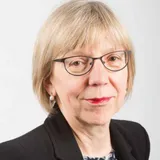Over the last ten years I have been fortunate enough to be working with teams in FREED and have really seen that where there is a will, there is a way. We are incredibly proud of what FREED has achieved over the last decade, and this conference has been a fantastic opportunity to reinvigorate our work, and explore new avenues for early intervention.
Ms Danielle Glennon, Clinical Head of FREED
23 September 2024
Specialists from around the world come together to mark ten years of FREED
Experts by experience, clinicians and researchers mark a decade of FREED, First Episode Rapid Early Intervention for Eating Disorders.
2014-24, FREED is an early intervention service model and care pathway delivering rapid well-coordinated care and interventions to young people with eating disorders. FREED is tailored to their developmental and illness stage. Across several studies FREED was shown to substantially reduce the amount of time young people spend having an untreated eating disorder, and FREED patients have markedly better treatment outcomes than similar young people treated as usual. Using the FREED service was shown to be a positive and empowering experience for patients, carers and staff.
The FREED at 10 Conference was an opportunity for experts within FREED, and those working in early intervention practices across the world, to come together and share findings, as well as those with lived experience sharing their stories.
The conference was opened by Professor Ulrike Schmidt OBE, Director of the Centre for Research in Eating and Weight Disorders at King’s IoPPN and Executive Director of FREED, and Ms Danielle Glennon a Consultant Psychotherapist and Nurse, and Head of FREED. The first keynote lecture of the day was given by Professor Pat McGorry, University of Melbourne, on the topic of the future of youth mental health. Referring to painstaking work conducted as part of a Lancet Commission on Youth Mental Health led by him he highlighted the transitional period between puberty and mature adulthood as being particularly challenging, and that the effects of the COVID-19 pandemic on mental health were greater in younger people than in other segments of the population, causing a youth mental health crisis. He encouraged delegates to consider what is happening in society, and why we may see these trends in young people’s mental health.
Talks were given by Dr Karina Allen on the use of brief focused interventions within FREED, showing that in many cases such interventions can be as effective as longer evidence-based treatments. Ms Jess Griffiths and Demi Helyer shared experiences of peer support-based techniques for early intervention at a local level, and were followed by Dr Julian Baudinet who looked at including the family within early intervention, highlighting that such interventions need tailoring for emerging adults. The session was concluded by Ms Lucy Hyam who shared the development and pilot testing of a FREED fidelity tool to ensure that the treatments are being delivered as they are intended to be.
The second keynote speech of the day was delivered by Professor Tracey Wade from Flinders University in Adelaide, Australia as part of a session on early intervention practices around the world. She shared the obstacles and opportunities and identifying how to intervene as early as possible in instances of eating disorders, through finding ways of identifying those patients who respond to brief focused interventions. Dr Nicole Obeid delivered her speech live from Canada, showing how in the Canadian system she and colleagues have integrated early intervention for eating disorders into the community, and built a continuum of care. The final talk of this global session was from Professor Anne-Marie Van Elburg and Dr Gwen Dieleman who discussed VIBES, an early intervention programme being delivered in the Netherlands specifically for young people with anorexia nervosa.
FREED is now the leading evidence-based early intervention model for young people with eating disorders. Going forward, we need to build on the achievements of and learning from FREED, so that we reach a much wider group of young people with eating disorders and reach them earlier. This will undoubtedly require additional sustained funding and changes in policy and practice. To advance the field and to personalise early intervention further, we will need to integrate precision approaches to FREED.
Professor Ulrike Schmidt, Executive Director of FREED
The final part of the day was an opportunity for a panel discussion on how we move forward with early intervention with contributions from Baroness Kate Parminter, Professor Dasha Nicholls, Mr Andrew Radford, Ms Danielle Glennon, Ms Shenika Tailor and Mr George Mycock. Panellists shared their personal experiences, and discussed topics including ensuring understanding of the nuances of patient relationships with their friends and family in treatment, the importance of considering how gender may impact how an eating disorder presents, and what can be done for patients through the transition from adolescence to early adulthood. The conference was concluded by Professor Schmidt who highlighted the need for policy and practice changes to facilitate delivery of authentic early intervention and also focused on how to advance this field further. She urged attendees to utilise the knowledge gained from the day to galvanise their work.
Alongside talks, the conference showcased several large-scale projects around eating disorders including the EDIFY consortium, focusing on personalised prevention and early intervention, the Eating Disorders Genetics Initiative (EDGI), Mindfulness, Eating Behaviours and Neuromodulation (MINDED), the STORY study and more.




